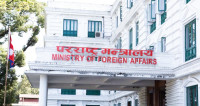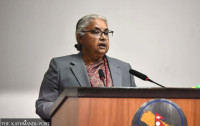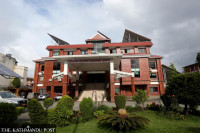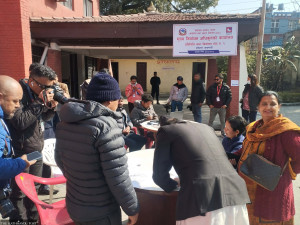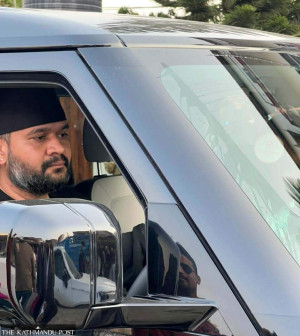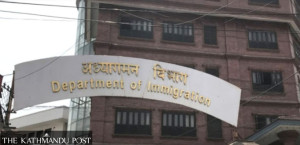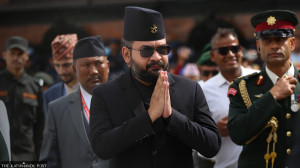National
‘Fixation on political news bane of Nepali media’
Widespread coverage of political news, the mainstay of media companies, has put issues of economic development in the shadow, preventing the country from creating an environment to generate jobs and make the nation prosperous.
Widespread coverage of political news, the mainstay of media companies, has put issues of economic development in the shadow, preventing the country from creating an environment to generate jobs and make the nation prosperous.
This was the main concern expressed at an interaction organised by the Kantipur Media Group (KMG) in Pokhara on Friday, which was attended by businesspersons, academics and professionals.
The other major concern raised at the broadly-participated forum was the problem of cartel, which, according to them, had hit growth and reform initiatives in almost all sectors-such as education, health, transport and energy. The participants expressed serious concern that cartel has become so deeply entrenched that political parties have started pedalling partisan interests by helping form different chambers of commerce.
“So, it is important that we keep politics away from business,” Anand Raj Mulmi, former president of the Federation of Nepalese Chambers of Commerce and Industry, told the interaction. “Media should expose these issues.”
The interaction was held as part of the campaign launched by KMG to get inputs from its readers based outside of the Kathmandu Valley.
Kantipur Media Group, which owns Kantipur, first national daily newspaper published by the private sector 23 years ago, started the campaign from the western city of Pokhara, where it has the largest readership base after the Valley.
Pokhara, also known as the lake city, has tremendous economic growth potentials, as literacy rate is quite high here and people are innovative.
The initiative taken by locals to promote tourism, which is one of the biggest income sources of Pokhara, is also commendable and launch of unique campaigns, such as “Jaun Hai Pokhara” (Let’s Go to Pokhara), to promote domestic tourism have been replicated by other cities.
“But Pokhara is not only about tourism,” said Bindu Koirala Subedi, vice president of the Pokhara Chamber of Commerce and Industry (PCCI). “It has one of the best climates in the world, which is an asset that can be used to promote medical tourism.”
Pokhara, which also has an effective irrigation system, also grows lots of herbs, according to Subedi. “But we sell these herbs abroad at a very low cost... If we could process them, we’d not only be able to generate more income, but create more jobs as well,” she said, adding, “Newspapers like Kantipur should also write about these issues and generate awareness.”
So, what Pokhara needs is more coverage, especially on business and economic issues, said PCCI President Bishwa Shankar Palikhe. “But Kantipur covers small events held in Kathmandu Valley very well, whereas big events held here get very little space,” he complained.
“Kantipur can buck the current trend by covering profiles of at least 12 entrepreneurs, not only of Pokhara, but those based outside of the Valley per year,” said Bisheshwar Acharya, principal of Novel Academy.
So, it’s time for media houses to focus on economic agendas, said Baburam Giri, former president of the Lekhnath Chamber of Commerce and Industry. “And Kantipur being a leading media company should take this initiative.”




 7.12°C Kathmandu
7.12°C Kathmandu
